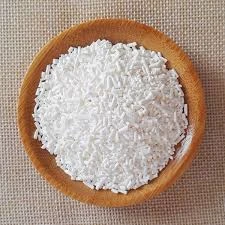
thickeners 407
Understanding Food Additives The Role of Thickeners E407
In the intricate world of food science, various additives play crucial roles in enhancing the texture, stability, and overall quality of food products. Among these additives, thickeners stand out, and one specific type, E407, known as carrageenan, has gained widespread attention in the food industry. This article explores what E407 is, its applications, safety concerns, and its significance in our diets.
What is E407?
E407, or carrageenan, is a natural thickener derived from red seaweeds, particularly species like Chondrus crispus (commonly known as Irish moss) and Eucheuma cottonii. It has been used for centuries in various culinary traditions, notably in the preparation of traditional Irish and other seaweed-based dishes. Carrageenan is prized for its ability to form gels and create stable emulsions, making it an essential ingredient in many processed foods.
Applications of E407
Carrageenan is used in a broad spectrum of food products, ranging from dairy items to meat substitutes. It serves multiple purposes, including
1. Thickening Agent Carrageenan enhances the viscosity of liquids, making it a popular additive in products like chocolate milk, ice cream, and sauces.
2. Stabilizer It helps maintain the texture and consistency of emulsified products, preventing separation of ingredients. This is particularly important in dairy products and creamers.
thickeners 407

3. Gelling Agent Carrageenan can form gels, which are essential in products like jellies, puddings, and some desserts. Its ability to provide a desirable mouthfeel is highly valued by manufacturers.
4. Fat Replacement In low-fat and reduced-calorie products, carrageenan can create a creamy texture without the need for additional fats, making it a popular choice for health-conscious consumers.
Safety of E407
The safety of food additives, including E407, is rigorously evaluated by health authorities around the world. Carrageenan has been deemed safe for consumption by organizations such as the Food and Drug Administration (FDA) and the European Food Safety Authority (EFSA). However, some studies and consumer groups have raised concerns about the potential effects of carrageenan on gastrointestinal health. These discussions often revolve around the difference between processed carrageenan and its more natural forms. While more research is necessary, current consensus supports its use within established guidelines.
Nutritional Considerations
While carrageenan does not provide nutritional benefits like vitamins or minerals, its role as a food additive is significant in the context of processed foods. It helps maintain the quality and appeal of various products that many consumers frequently enjoy. It is particularly relevant in the gluten-free and vegan food markets, where maintaining texture and consistency can be challenging.
Conclusion
E407, or carrageenan, is a versatile food additive that plays a pivotal role in the modern food supply. Its ability to thicken, stabilize, and gel makes it an invaluable ingredient across a wide array of products, particularly in dairy alternatives and processed foods. As with any food additive, it is essential for consumers to be informed and aware of the ingredients in their food. While there are ongoing discussions about the long-term health implications of certain additives, current regulations affirm that carrageenan is safe for consumption. As we navigate our food choices, understanding these components can empower us to make more informed decisions about our diets and overall health.
-
Pure Sodium Dichloroisocyanurate Dihydrate | Powerful DisinfectantNewsAug.29,2025
-
Industrial Chemicals: Quality & Purity for Every IndustryNewsAug.28,2025
-
Nitrile Rubber Honoring Strict Production StandardsNewsAug.22,2025
-
Aspartame Ingredients Honoring Food Safety ValuesNewsAug.22,2025
-
Fertilizer for Balanced Plant NutritionNewsAug.22,2025
-
Cyanide Gold Processing with High Purity AdditivesNewsAug.22,2025
-
Formic Acid in Textile Dyeing ApplicationsNewsAug.22,2025
Hebei Tenger Chemical Technology Co., Ltd. focuses on the chemical industry and is committed to the export service of chemical raw materials.
-

view more DiethanolisopropanolamineIn the ever-growing field of chemical solutions, diethanolisopropanolamine (DEIPA) stands out as a versatile and important compound. Due to its unique chemical structure and properties, DEIPA is of interest to various industries including construction, personal care, and agriculture. -

view more TriisopropanolamineTriisopropanolamine (TIPA) alkanol amine substance, is a kind of alcohol amine compound with amino and alcohol hydroxyl, and because of its molecules contains both amino and hydroxyl. -

view more Tetramethyl Thiuram DisulfideTetramethyl thiuram disulfide, also known as TMTD, is a white to light-yellow powder with a distinct sulfur-like odor. It is soluble in organic solvents such as benzene, acetone, and ethyl acetate, making it highly versatile for use in different formulations. TMTD is known for its excellent vulcanization acceleration properties, which makes it a key ingredient in the production of rubber products. Additionally, it acts as an effective fungicide and bactericide, making it valuable in agricultural applications. Its high purity and stability ensure consistent performance, making it a preferred choice for manufacturers across various industries.





